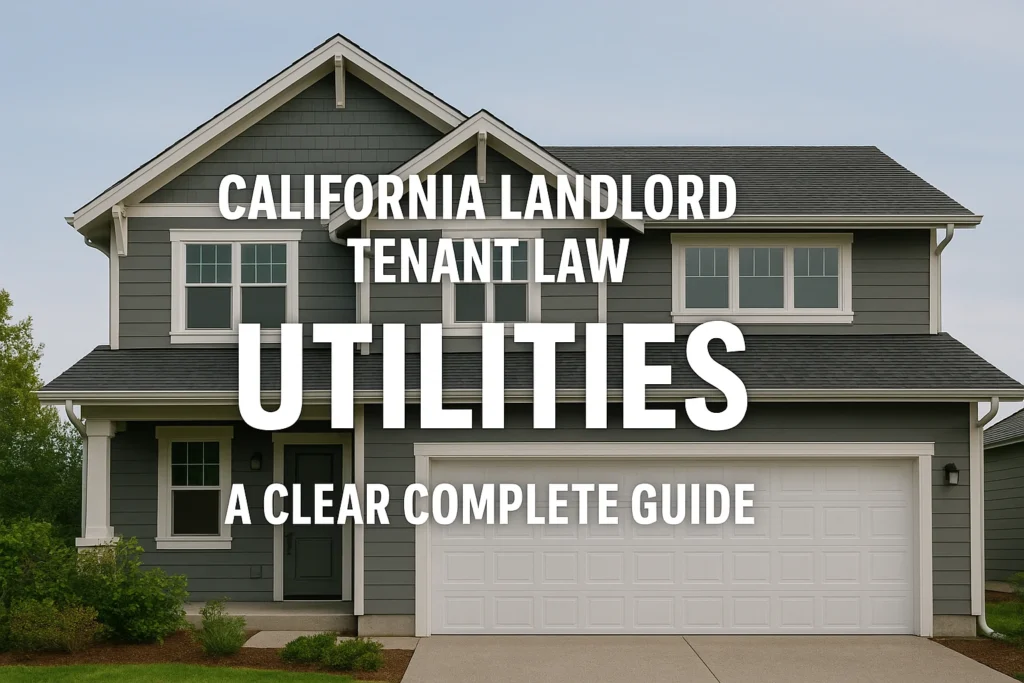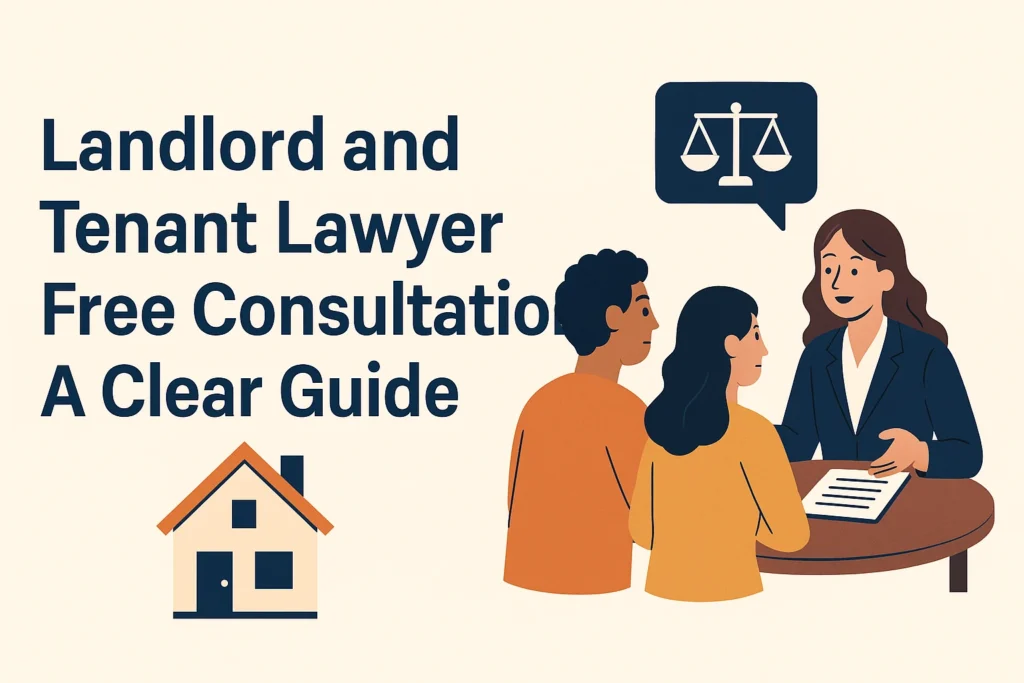California treats light, heat, and water as basic rights. Courts connect safe service to the warranty of habitability that guards every rental unit. A dark or cold home fails that legal standard at once.
Civil Code § 789.3 orders harsh fines when an owner cuts a utility. The first shut‑off costs at least two hundred fifty dollars. Each extra day adds one hundred dollars more. Judges may stack motel bills, food loss, and attorney fees on top. Public Utilities Code § 777.1 defends tenants in master‑meter buildings. The utility must give a ten‑day notice and must allow renters to open direct accounts so power stays on.
Tenants have quick paths to relief. Small claims court hears cases up to ten thousand dollars with no lawyer required. Renters may withhold rent, repair and deduct, or move out when service lapses turn a unit unsafe. A clear log, photos, and certified letters prove the claim and speed a court order to restore service.
Owners avoid trouble when they act fast. They must repair blown fuses, pay bills on time, and post emergency numbers in halls. Good records and prompt fixes keep trust high and penalties low.
Habitability and Basic Utility Service
Landlords must give each tenant a unit fit to live in. California’s habitability rules list unbroken gas, electric, and water lines among the “bare living requirements” landlords must meet at move‑in and keep during the lease.
Tenants may sue when service fails, and judges can order swift repair plus damages. A lease clause that shifts that duty to tenants carries no weight in court. The state treats the duty as non-waivable. Owners who delay repairs risk rent withholding, repair and deduct claims, or an early lease exit.
The duty runs on all units, whether old or new. Owners of mobile homes, accessory units, and single rooms must meet the same baseline. Courts also look at common‑area lights, shared boilers, and laundry hookups.
Fault in any shared line may breach the warranty even when one tenant’s lights stay on. The rule keeps large complexes from ignoring dark halls or cold showers that harm many tenants at once.
Local codes may add tighter standards. Cities such as Los Angeles and Oakland require faster repairs and impose extra fines. These rules sit on top of state law and never erase statewide rights. Tenants gain the higher protection whenever two codes clash.
Who Pays the Bill
California lets landlords pass utility costs to tenants unless the lease says otherwise. The lease must spell out each charge in plain words so renters know what to expect. Owners may bill only the actual cost plus a fair share of common‑area use. Hidden mark‑ups break state consumer rules.
The owner may collect only the true charge plus a fair share of hall lights or laundry room use. Any secret markup breaks state consumer rules and risks fines.
Master‑meter properties demand extra clarity. The owner pays the main bill, then seeks exact reimbursement from each unit. A written allocation plan must sit inside the lease. Tenants may review the master invoice and meter logs before they hand over cash. Courts frown on any sudden spike that lacks proof.
Public Utilities Code § 777.1 guards tenants when an owner misses a payment. The utility must post a ten‑day shut‑off notice on every door and must offer tenants the option to open direct accounts that start fresh, free of the landlord’s debt. Lights and water stay on, and the household avoids harm caused by a bill the owner failed to pay.
Illegal Utility Shut Offs and Penalties
Civil Code § 789.3 calls any forced shut‑off an unlawful self‑help eviction. The moment an owner pulls power, gas, or water, statutory damages start to run. The first act costs at least two hundred fifty dollars. Each full day that lights stay dark or taps stay dry adds one hundred dollars more.
Courts stack actual losses on top of these figures. Motel bills, restaurant meals, spoiled food, and lost wages all qualify. Judges often add a sum for distress when a family spends nights in the dark or chills through a winter storm.
Injunctions arrive fast. A tenant shows the judge the meter or a past‑due notice, and the court orders service back on at once. Attorney fees shift to the landlord, so renters avoid the net cost. A seven‑day outage can run past seven hundred dollars before any real loss or legal bill hits the ledger.
Severe cases draw public prosecutors. The Los Angeles County consumer bureau, the San Francisco City Attorney, and other local offices sue owners who use shut‑offs as pressure. In Santa Barbara, tenants also gain protection under the Santa Barbara Tenant Anti‑Harassment Law, which blocks landlords from using intimidation or illegal tactics to force a tenant out.
Submetering and Allocation Rules
Senate Bill 7 took effect in 2018. The law orders every new multifamily project with four or more dwellings to set a separate water submeter for each unit. Every monthly bill must list the raw meter figure, the base service fee, and each rate tier in plain terms. An owner who needs to enter a unit to read or repair a submeter must give advance written notice and must follow the normal right‑of‑entry rules in Civil Code § 1954.
The goal is clear: save water and show each tenant the true cost of use. When a resident spots a spike and reports a leak, the owner must repair it without delay. Courts often trim or void any charge that arose because of a leak the owner failed to repair. Big providers such as the Los Angeles Department of Water and Power post step‑by‑step guides on proper submeter setup, data logs, and invoice forms.
Older buildings that lack individual meters may rely on ratio utility billing systems. The lease must explain the exact formula square footage, number of occupants, or a blend and must let tenants review the calculation sheet on request. A hidden or shifting formula violates consumer rules and can void the fee.
Owners who misuse submeter data risk state penalties and tenant suits. Tenants who see unexplained jumps in water bills should ask at once for the meter log and the master invoice. Clear records protect both sides and keep small errors from turning into large claims.
Remedies When Service Fails
Tenants gather proof first. Snap photos of dark rooms, cold taps, or blank meters as soon as service stops. Save screenshots of outage alerts and dated text messages from the utility. Print bills that show a sudden spike. A certified letter that demands repair and cites the shut‑off shows good faith and starts a clear paper trail.
Civil Code § 1942 lets a tenant cut rent or fix and deduct. The repair cost must stay under one month’s rent, and a tenant may use the rule only twice in twelve months. Large repairs or repeat failures call for a court. A tenant may sue for damages, seek an injunction, or leave the unit when health risks rise.
Group action saves money. Neighbors in the same building often share one lawyer and split costs. You can also start with a landlord and tenant lawyer free consultation to understand your rights and build a strong case before filing in court.
Small claims court hears disputes up to ten thousand dollars. Hearings move fast, and tenants need no lawyer. The filing fee stays low, and judges issue orders to restore service the same day in clear emergencies.
Deadlines matter. A tenant has three years to file after each shut‑off. Fast action blocks owners from saying the tenant accepted poor service. Quick proof, clear demands, and strict timelines push repairs forward and keep homes safe.
Practical Tips for Landlords and Tenants
Landlords set clear rules at lease signing. They list each utility duty and note who pays each bill. They post emergency numbers in halls and add them to welcome packets. Monthly walks through halls spot dark bulbs, hissing pipes, or slow drains before tenants file complaints.
A fast repair avoids fines and wins tenant trust. Property files keep dates of repairs and copies of paid utility bills in one place so proof stands ready if a dispute starts.
Smart owners test shut‑off valves and circuit breakers each quarter. They hire licensed plumbers or electricians for large jobs. They mark meters with the unit number to avoid mix‑ups. And they keep spare light bulbs and GFCI outlets on hand for quick fixes. A small toolkit and a written checklist turn weekly rounds into a cheap insurance plan.
Tenants snap meter photos on move‑in day and email them to the owner. Each month, they compare new bills to past averages. A sudden spike hints at a hidden leak or faulty meter.
Early notice gives the owner time to solve the problem and keeps the bill low. Tenants keep a small flashlight, fresh batteries, and basic surge protectors in the unit to deal with short outages and protect electronics. They label the breaker box so guests can reset a tripped switch without panic.
Final Words
California calls light, heat, and water basic rights. The state locks those rights into law. Civil Code § 789.3, Public Utilities Code § 777.1, and SB 7 guard every renter.
These statutes stop self‑help tricks. A landlord who cuts service faces swift fines and court orders. Tenants gain firm ground when power or water fails.
Good owners gain as well. Clear duties guide quick repairs. Fast action keeps leases firm and blocks costly suits.
Strong records win cases. Tenants who note each lapse, keep receipts, and mail certified letters hold the upper hand. Plain logs plus bold law keep homes safe across the Golden State.
Common Questions
Q: Is it legal for a landlord to shut off utilities to make a tenant leave in California?
Cutting electricity, gas, or water to push a renter out is illegal under Civil Code § 789.3, triggering a $250 base penalty, $100 per day, and extra tenant damages.
Q: Who pays utility charges in a master‑metered apartment building?
The owner pays the main bill and may recover only true costs spelled out in the lease; if the bill goes unpaid, §777.1 lets tenants open direct accounts and keep service.
Q: What steps should a tenant take when the utility company threatens shut‑off because the landlord is delinquent?
Call the provider at once, invoke §777.1 to stop shut‑off and open your own account, keep the posted notice, send a certified demand, and ready small‑claims papers for damages.
Disclaimer: This article provides general information only and does not constitute legal advice. For advice on your specific situation, consult a qualified landlord‑tenant attorney.



